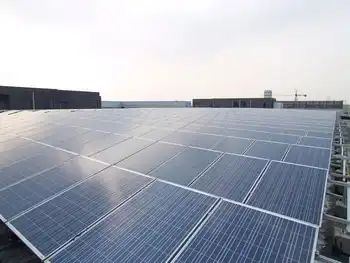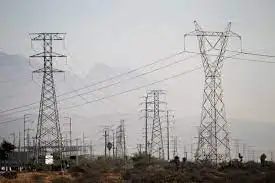Clean-energy generation powers economy, environment

NFPA 70b Training - Electrical Maintenance
Our customized live online or in‑person group training can be delivered to your staff at your location.

- Live Online
- 12 hours Instructor-led
- Group Training Available
Atlin Hydro and Transmission Project delivers First Nation-led clean energy via hydropower to the Yukon grid, replacing diesel, cutting emissions, and creating jobs, with a 69-kV line from Atlin, B.C., supplying about 35 GWh annually.
Key Points
A First Nation-led 8.5 MW hydropower and 69-kV line supplying clean energy to the Yukon, reducing diesel use.
✅ 8.5 MW capacity; ~35 GWh annually to Yukon grid
✅ 69-kV, 92 km line links Atlin to Jakes Corner
✅ Creates 176 construction jobs; cuts diesel and emissions
A First Nation-led clean-power generation project for British Columbia’s Northwest will provide a significant economic boost and good jobs for people in the area, as well as ongoing revenue from clean energy sold to the Yukon.
“This clean-energy project has the potential to be a win-win: creating opportunities for people, revenue for the community and cleaner air for everyone across the Northwest,” said Premier John Horgan. “That’s why our government is proud to be working in partnership with the Taku River Tlingit First Nation and other levels of government to make this promising project a reality. Together, we can build a stronger, cleaner future by producing more clean hydropower to replace fossil fuels – just as they have done here in Atlin.”
The Province is contributing $20 million toward a hydroelectric generation and transmission project being developed by the Taku River Tlingit First Nation (TRTFN) to replace diesel electricity generation in the Yukon, which is also supported by the Government of Yukon and the Government of Canada, and comes as BC Hydro demand fell during COVID-19 across the province.
“Renewable-energy projects are helping remote communities reduce the use of diesel for electricity generation, which reduces air pollution, improves environmental outcomes and creates local jobs,” said Bruce Ralston, Minister of Energy, Mines and Low Carbon Innovation. “This project will advance reconciliation with TRTFN, foster economic development in Atlin and support intergovernmental efforts to reduce greenhouse gas emissions.”
TRTFN is based in Atlin with territory in B.C., the Yukon, and Alaska. TRTFN is an active participant in clean-energy development and, since 2009, has successfully replaced diesel-generated electricity in Atlin with a 2.1-megawatt (MW) hydro facility amid oversight issues such as BC Hydro misled regulator elsewhere in the province today.
TRTFN owns the Tlingit Homeland Energy Limited Partnership (THELP), which promotes economic development through clean energy. THELP plans to expand its hydro portfolio by constructing the Atlin Hydro and Transmission Project and selling electricity to the Yukon via a new transmission line, in a landscape shaped by T&D rates decisions in jurisdictions like Ontario for cost recovery.
The Government of Yukon is requiring its Yukon Energy Corporation (YEC) to generate 97% of its electricity from renewable resources by 2030. This project provides an opportunity for the Yukon government to reduce reliance on diesel generators and to meet future load growth, at a time when Manitoba Hydro's debt pressures highlight utility cost challenges.
The new transmission line between Atlin and the Yukon grid will include a fibre-optic data cable to support facility operations, with surplus capacity that can be used to bring high-speed internet connectivity to Atlin residents for the first time.
“Opportunities like this hydroelectricity project led by the Taku River Tlingit First Nation is a great example of identifying and then supporting First Nations-led clean-energy opportunities that will support resilient communities and provide clean economic opportunities in the region for years to come. We all have a responsibility to invest in projects that benefit our shared climate goals while advancing economic reconciliation.” said George Heyman, Minister of Environment and Climate Change Strategy.
“Thank you to the Government of British Columbia for investing in this important project, which will further strengthen the connection between the Yukon and Atlin. This ambitious initiative will expand renewable energy capacity in the North in partnership with the Taku River Tlingit First Nation while reducing the Yukon’s emissions and ensuring energy remains affordable for Yukoners.“ said Sandy Silver, Premier of Yukon.
“The Atlin Hydro Project represents an important step toward meeting the Yukon’s growing electricity needs and the renewable energy targets in the Our Clean Future strategy. Our government is proud to contribute to the development of this project and we thank the Government of British Columbia and all partners for their contributions and commitment to renewable energy initiatives. This project demonstrates what can be accomplished when communities, First Nations and federal, provincial and territorial governments come together to plan for a greener economy and future.” said John Streicker, Minister Responsible for the Yukon Development Corporation.
“Atlin has enjoyed clean and renewable energy since 2009 because of our hydroelectric project. Over its lifespan, Atlin’s hydro opportunity will prevent more than one million tonnes of greenhouse gases from being created to power the southern Yukon. We are looking forward to the continuation of this project. Our collective dream is to meet our environmental and economic goals for the region and our local community within the next 10 years. We are so grateful to all our partners involved for their financial support, as we continue onward in creating an energy efficient and sustainable North.” said Charmaine Thom, Taku River Tlingit First Nation spokesperson.
Quick Facts:
- The 8.5-MW project is expected to provide an average of 35 gigawatt hours of energy annually to the Yukon. To accomplish this, TRTFN plans to leverage the existing water storage capability of Surprise Lake, add new infrastructure, and send power 92 km north to Jakes Corner, Yukon, along a new 69-kilovolt transmission line.
- The project is expected to cost $253 - 308.5 million, the higher number reflecting recently estimated impacts of inflation and supply chain cost escalation, alongside sector accounting concerns such as deferred BC Hydro costs noted in recent reports.
- The project is expected to have a positive impact on local and provincial economic development in the form of, even as governance debates like Manitoba Hydro board changes draw attention elsewhere:
- 176 full-time positions during construction;
- six to eight full-time positions in operations and maintenance over 40 years; and
- increased business for B.C. contractors.
- Territorial and federal funders have committed $151.1 million to support the project, most recently the $32.2 million committed in the 2022 federal bdget.















